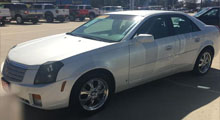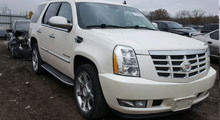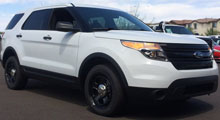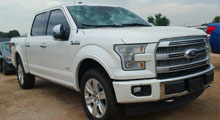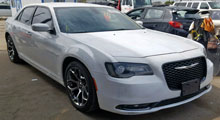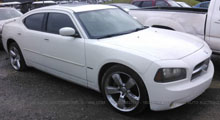What Is The Value Of A Used Car?
Buying a used car means being prepared not only to hunt down a good deal but also to spot a bad one. When determining the price of a used car, size, and model are considered for a number of factors, including mileage and vehicle condition. To protect yourself as a consumer, keep reading to learn how to determine the value of a used car. There are several factors to consider when determining the value of a used car.
Seek help from reputable car dealerships
Dealers are a great option if you want to know the current market value of your vehicle because this is their business and they sell a lot of used cars every day. Thus, they know the market price of any car. They compare models and look at defects in the used car, and then determine the selling price. In addition, dealers can also give you some advice on negotiating with a buyer. Whether you are a buyer or a seller, knowing the exact market value of a used car helps both parties to anchor their business without too much trouble.
Check the Kelly's Blue Book
The first thing to look for to determine the value of a used car is Kelly's Blue Book or NADA Guidelines. Both websites provide guidance values for cars based on make, model, year, mileage, condition, geographic region of sale, and method of sale. For example, the trade-in vehicle for a car is almost always much less than if the car was sold privately. While the Blue Book and NADA Guidelines are by no means carved out of stone, they can provide a general idea of the overall value of a vehicle. And since many people and companies rely on the information in these guides, you will benefit from the same actions.
Get a thorough car inspection
Never buy used cars without a physical examination. The information contained in the advertisements can be confusing even for seasoned buyers. A thorough inspection of the vehicle can help you identify potential problems, especially those under the sill or chassis. This independent car assessment will help you get a clearer picture of the real value of the car. In addition, a good mechanic can also discover previous defects or damage that have been repaired or simply hidden and that a beginner might otherwise be missing. You can ask for the vehicle to be delivered to the nearest mechanic for pre-purchase assessment, or even bring a mechanic with you.
Check mileage
Another thing to consider is how much mileage the vehicle has traveled. Obviously, less mileage will result in a higher value tag than if the car has traveled a lot and has a lot of mileage. The higher the mileage, the older the car, and the lower the value. As a rule, a car with high mileage and several years of operation will be cheaper. Unless you're dealing with a vintage collection, age is never a plus for determining the value of a car. Many vehicles also have a timing belt or chain that must be replaced every 100,000 miles. If the vehicle you are considering is at a greater or greater distance, make sure the entire belt has been replaced, as the cash costs that can fall in this regard can range from an additional $ 500-1000.
Examine the condition of the car
While it is quite easy to clean or care for a car, how well it is serviced both inside and out should affect the car's assessment. Keep it free of stains, odors, burns, leaks, dirty fluids, or other signs that the vehicle has not been properly cared for. from the person who sells it. This includes the make and model of the car, year of manufacture, shape, mileage accrued on the car, and any features. Special features include electric seats and windows, Tonneau covers, treadmills, stereos, and more. These things usually have little effect on the price of a car. Talk to the car dealer and inspect the car carefully. Inspect the vehicle inside and out for damage, leaks, upholstery tears, etc.
Age
The age of a car is obviously a decisive factor in determining its value and therefore its price. An older car (if not a vintage one) will cost less than a newer model.
General appearance
If you have taken care of your vehicle, kept it clean, washed and waxed, it will cost more than a mistreated car. To get more money for the car, do not smoke in the car, because this smell almost never comes out of the car. Most people don't want to buy a smoking car, so the cost of the car goes down.
Understand different used car values
The next step you need to take is to understand the different values, namely Trade-in, Private Party, and Retail price of your user's car. In general, the real value of any used car depends primarily on these three core values, and therefore it is very important to understand these values and what different meanings they represent:
(a)Used Car Trade-in Value - - The trade-in value is the price that a dealer will pay for a used car. In simple terms, it can also be thought of as the value the dealer will use for a used car when it is sold for a new car. Most dealers usually start with this cost when deciding how much money to give to the customer.
(b Private Party Value. This is a price determined by personal buyers. For a quick sale, it is recommended you sell your second-hand car to a private party.it is always a good idea to quote a sale price at a price lower than that of a private party.
(c) Retail Value - The retail value of a used car is the price that the dealer intends to sell to any other customer. This is the value that the dealer selling new or used cars will use as the selling price of the vehicle to the retail buyer.
Conclusion
Determining the value for a used car is one of the toughest challenges in both buying and selling used vehicles. Most of the vehicles you see on the list of cars for sale do not meet expectations in terms of quality and condition. We see something on the Internet, and when we get behind the wheel or see a car in reality, it seems like a completely different product.
